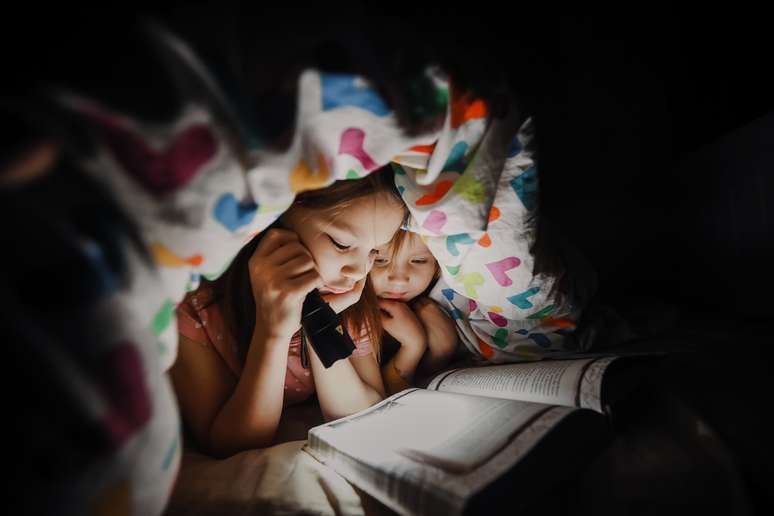Experts explain the cure when you allow your child to spend a night in another home – and if there’s an ideal age for that to happen
Considering that we are sociable beings and that children, from an early age, understand things based on what they see and experience in life, it is very important that they come into contact with other realities during their childhood. Both at school and at home, away from home. “Having examples and experiences outside one’s home – which is the world reference for a young child – is having one’s own experience a little more expanded”explains Alice Munguba, a specialist psychologist at the Child Psychoanalytic Clinic of Holiste Psyquiatria.
html[data-range=”xlarge”] figure image img.img-b6e6e2ca32cfadc0d81cd498260fe8c0548c8y8k { width: 774px; height: 516px; }HTML[data-range=”large”] figure image img.img-b6e6e2ca32cfadc0d81cd498260fe8c0548c8y8k { width: 548px; height: 365px; }HTML[data-range=”small”] figure image img.img-b6e6e2ca32cfadc0d81cd498260fe8c0548c8y8k, html[data-range=”medium”] figure image img.img-b6e6e2ca32cfadc0d81cd498260fe8c0548c8y8k { width: 564px; height: 376px; }HTML[data-range=”small”] .article__image-embed, html[data-range=”medium”] .article__image-embed { width: 564px; margin: auto 0 30px; }
The importance of frequenting other houses
When visiting friends’ houses, the little one has the opportunity to get to know a little different values and traditions, without the pedagogical needs they have at school, For example. It’s a free and spontaneous game, using creativity and expanding your references to the world. “Learn how his classmates live their routine, play new games and eat different things, that sometimes you don’t have at homesays Alice.
There is also the development of empathy and understanding of the topic of diversity. “Coping with different structures and contexts generates learning, due to exposure to different family models. This strengthens the social bonds of friendship and It also encourages their autonomy and independence, through small freedoms from an early age,” emphasizes Helen Mavichian, a psychotherapist specializing in children and adolescents and Masters in Developmental Disorders.
The challenge for some parents, however, has come determine when your child is really ready to spend the night at other children’s homes, in homes that the family considers a safe, reliable environment of well-being and good experience. See below for expert advice!
Is there a right age for a child to sleep outside?
There is no exact age for children to be able to spend the night outdoors., at a friend’s house. This will vary according to each child’s development and maturity. “As well as the context of any family,” says Helen. To assess if the baby is ready, see if he himself begins to manifest this desire.
Alice Munguba remembers this sleep is a moment of intimacy and great rest: “The child does not always relax away from home, to sleep or to be put to sleep by other adults, in a different bed and room”. In many cases he manages to spend the day at her friend’s house, but not the night, because he still doesn’t feel safe.
Above all, it is also important to take into account the level of trust in the heads of the other household and ensure that the child himself has open and effective communication with his parents. “If there’s a problem or an awkward situation, she’ll open up,” Helen points out.
Realize the maturity of the child
If your child isn’t ready to sleep outside yet, he won’t feel safe spending all night in the other house. You’ll end up coming back when it’s time to fall asleep or, in other cases, you won’t get quality sleep. “It can be a bad, scary, even traumatic experience. Maybe he doesn’t want to repeat it anytime soon,” says Alice.
In addition to trusting the colleague with whom he will share the room, as well as the adults in the house, the child needs to have maturity to talk to parents. “Evaluate if he already carries out daily tasks independently, if he is a child who communicates with his family, is confident in telling his questions and how he chooses and approaches his friendships,” explains Hellen.

Evaluate the safety of the other house
Analyze the environment in which the child will go is always one of the first criteria: if you personally know the family, its habits, if your child will adapt to what he will find there… “Parents must be very sure of the other home where the child will share intimacy and sleep, we know that sexual abuse of minors is, unfortunately, a very common concern,” underlines Alice.
Reinforce with the child that if something happens, or if he doesn’t feel well, he can call and call the parents. “It gives you confidence knowing you can count on your family,” adds Hellen Mavichian. Early communication will ensure that your child is well cared for and that their needs are met.
Also talk to the host family about your child’s eating habits, possible intolerances, sleep routine, medical or special needs. Also, keep in touch with whoever is responsible for the baby and be available to call you if necessary.
Instruct the child to spend the night outside
If the child wants to sleep at a friend’s house, the parents know and trust the house that will welcome them and everything is agreed with the other guardians, it’s time to talk to the little one about the rules that he will find in his new home. “Tell them, for example, if they are vegan or vegetarian, if they will have to adapt with food or bring their own lunch and what their morning and sleep routine is,” suggests Alice.
Each family will have its own profile and will remind your child about it you will have to obey those in charge of the house. If you need help or hear something, reiterate that it is possible to call the parents, talk to the other child’s friend or mother. “Give instructions on how the little one can activate the aid”explains the psychologist.
The child can still take an item from home, like a pillow or a teddy bear, to make it easier to stay in the other environment. “When everything lines up, this tends to be an interesting experience for those who will receive and for those who will visit,” Alice reinforces.
If the parents notice that the child is in fact unable to adapt, either because of the food, or because he cannot follow the limits and rules of the other house, because he is not at ease or because of the routine, clearly state the truth. “Explain that one day this will be possible and that the child has the opportunity to achieve these goals to be able to stay at the colleague’s house”, points out the psychologist.
Source: Terra
Ben Stock is a lifestyle journalist and author at Gossipify. He writes about topics such as health, wellness, travel, food and home decor. He provides practical advice and inspiration to improve well-being, keeps readers up to date with latest lifestyle news and trends, known for his engaging writing style, in-depth analysis and unique perspectives.






